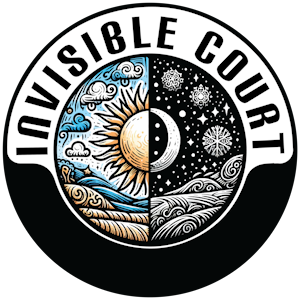Worldbuilding thoughts (part 1)
WHY is Gamora? - Drax the Destroyer
After you decide on your main idea, you have to develop its setting. This is where worldbuilding comes in.
If your premise doesn't already dictate it, you'll likely start by picking a genre. Like pretty much anything I'll tell you, this is not a rule set in stone. You don't have to pick one and stick with it come hell or high water. There are many examples of stories that have crossed genre boundaries successfully and as a creative you should never let yourself be pigeon-holed. Still, committing to a genre can provide you with useful examples of how to structure your writing. It also gives you an insight into reader expectations, which you can then use to further tune your story.
Typically, if you're writing to a subset of science fiction or fantasy, as I'm doing, your next step will be to come up with an environment for the story to play out in. Again, you don't have to. You can just stay on our current piece of galactic real estate, but authors often want to go beyond. The thing about worldbuilding is that it can be a bit of a trap that can easily take up all of your time. I once followed this (awesome) playlist to build a world for a story. At one point, I got stuck and almost abandoned the entire project altogether, because I felt I couldn't start writing until I'd finished the world. Nothing was physically stopping me from writing, but the worldbuilding, not the story, had become the goal.
The 5 Ws
To avoid situations like that in new projects, I now use a different approach to get the core of a world running and then build on that through storytelling, instead of trying to deliver a full-grown world and then add the story in. I call it.. well, it's right in that header. Basically, I have five questions which, when answered, should give me enough to work with.
The first two Ws are What and Who. These boil down to what happens in the story and who does it happen to? Both should already have received some sort of answer in your inspiration phase, but you can expand on it here. What's the technology level of a place? What roles do your characters have in it? We're thinking broad strokes here, don't go too deep.
Then there is Where. Where is mostly concerned with geography. You don't have to produce a fully detailed map of your world. You just want to have some idea about the key places and their relative positions. This way you avoid situations where your characters travel 5 hours south to get to a new place and then, in the next chapter, 2 days west to get back.
When is similar, but deals with the relative positions of events in time. For example, my story starts several years after a war that some of the party fought in. Now if the war was 10 years ago and your characters are 16 at the time of writing.. well, it could provide the reader with a damning fact about your world and its views on child soldiers. But it could also mean you just messed up the timeline and that's what we're trying to avoid here.
The last W is Why. This differs from what, as it's not "Why are things happening?" Rather, it is why should the reader care? What makes this world interesting? Again, we want a few points about what makes it special, not an entire treatise.
Using the above, you should end up with a bare bones, but functional framework to hang the rest of your story on. You're neither trying to write the Encyclopedia Britannica of your world, nor info dump on your reader. Rather, you're trying to maintain your focus, while preventing the reader from going "Hey, wait-a-minute..", because that breaks immersion.
After answering these, you can start filling in the rest of the details through your writing. For some examples of how others approach above process, I would be remiss not to mention that a new issue of Worldbuilding Magazine came out only two days ago. Just in time for the holidays!
Speaking of, I'd like to wish everyone a Merry Christmas. We'll speak again next week!
